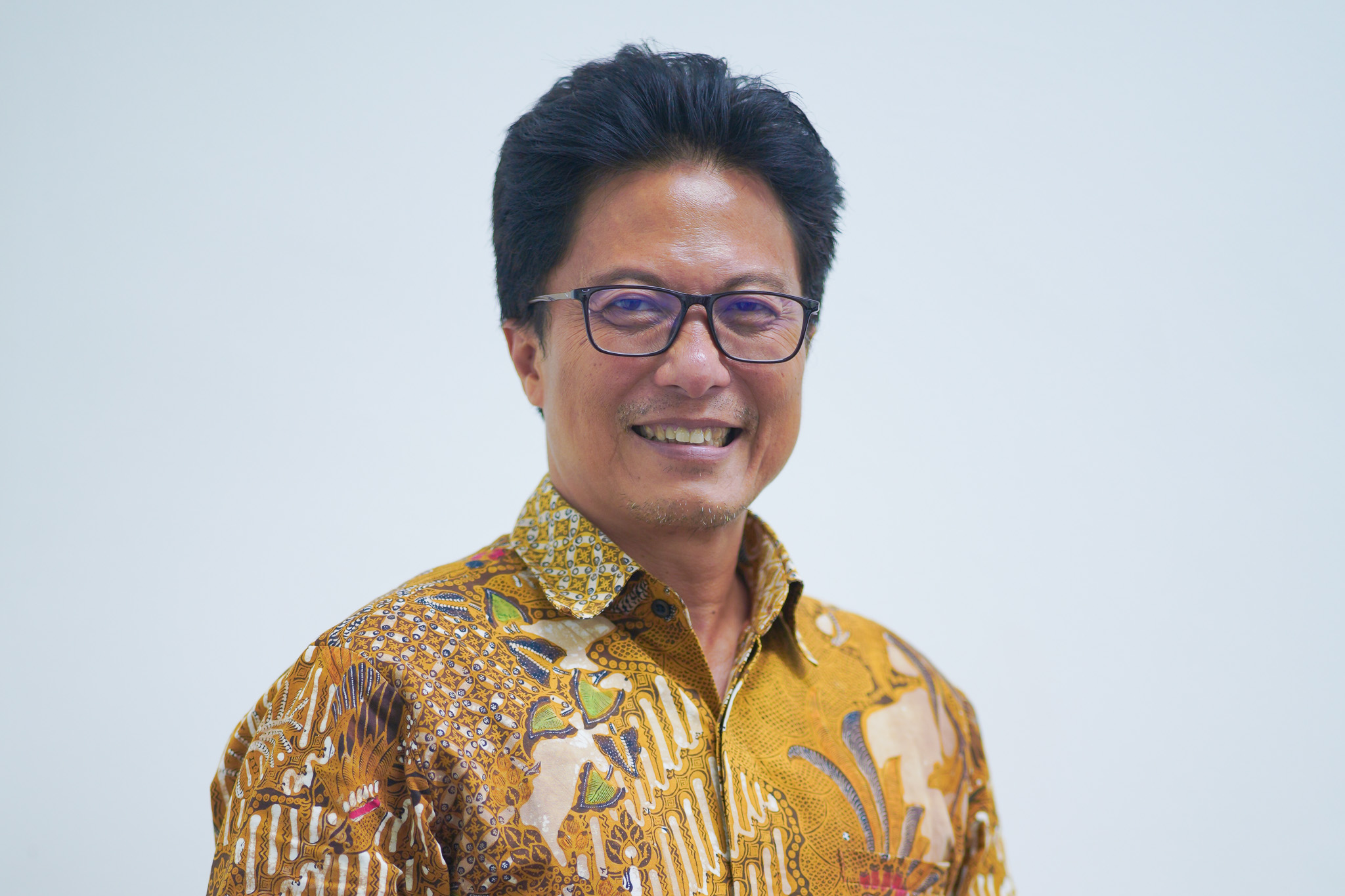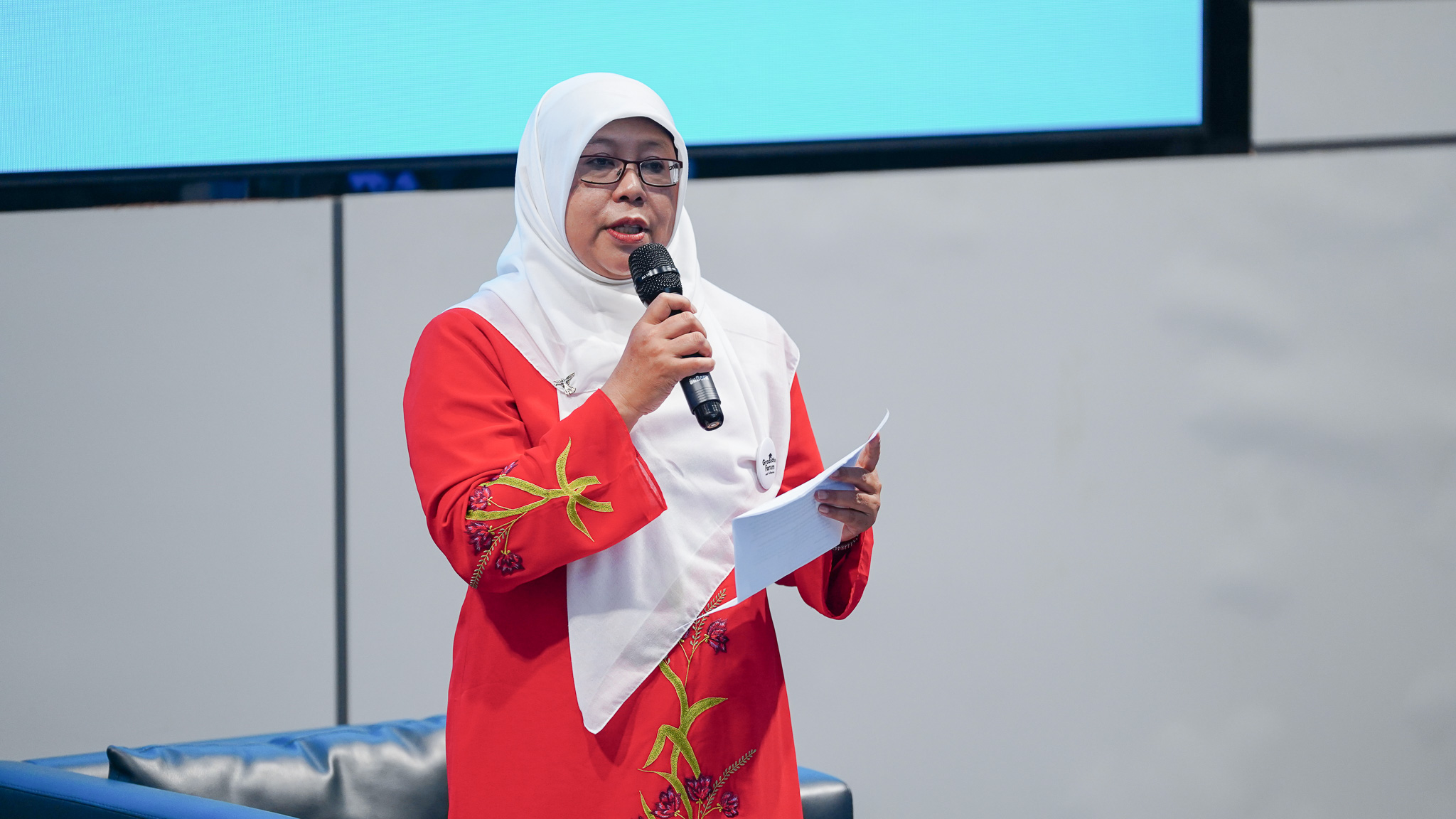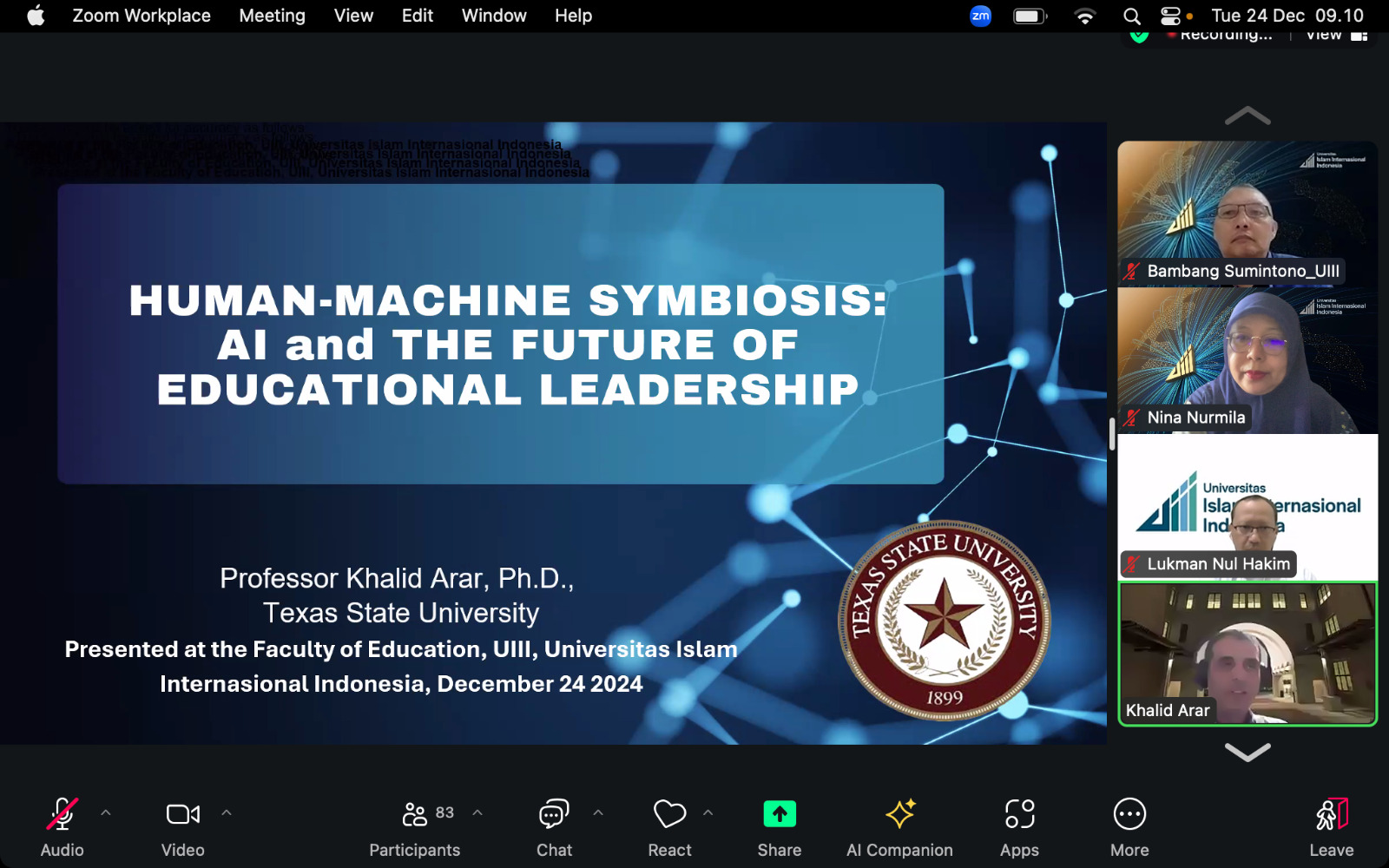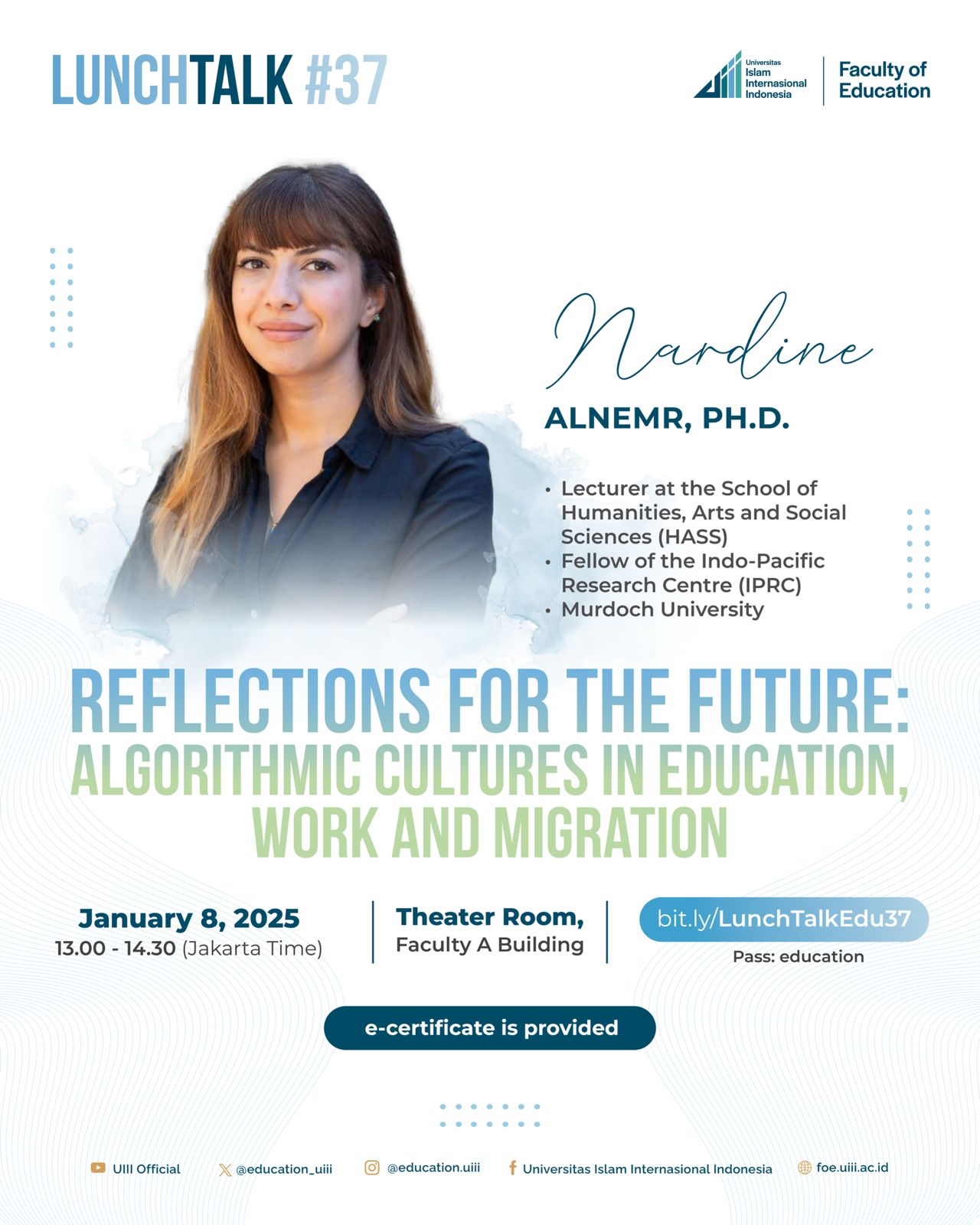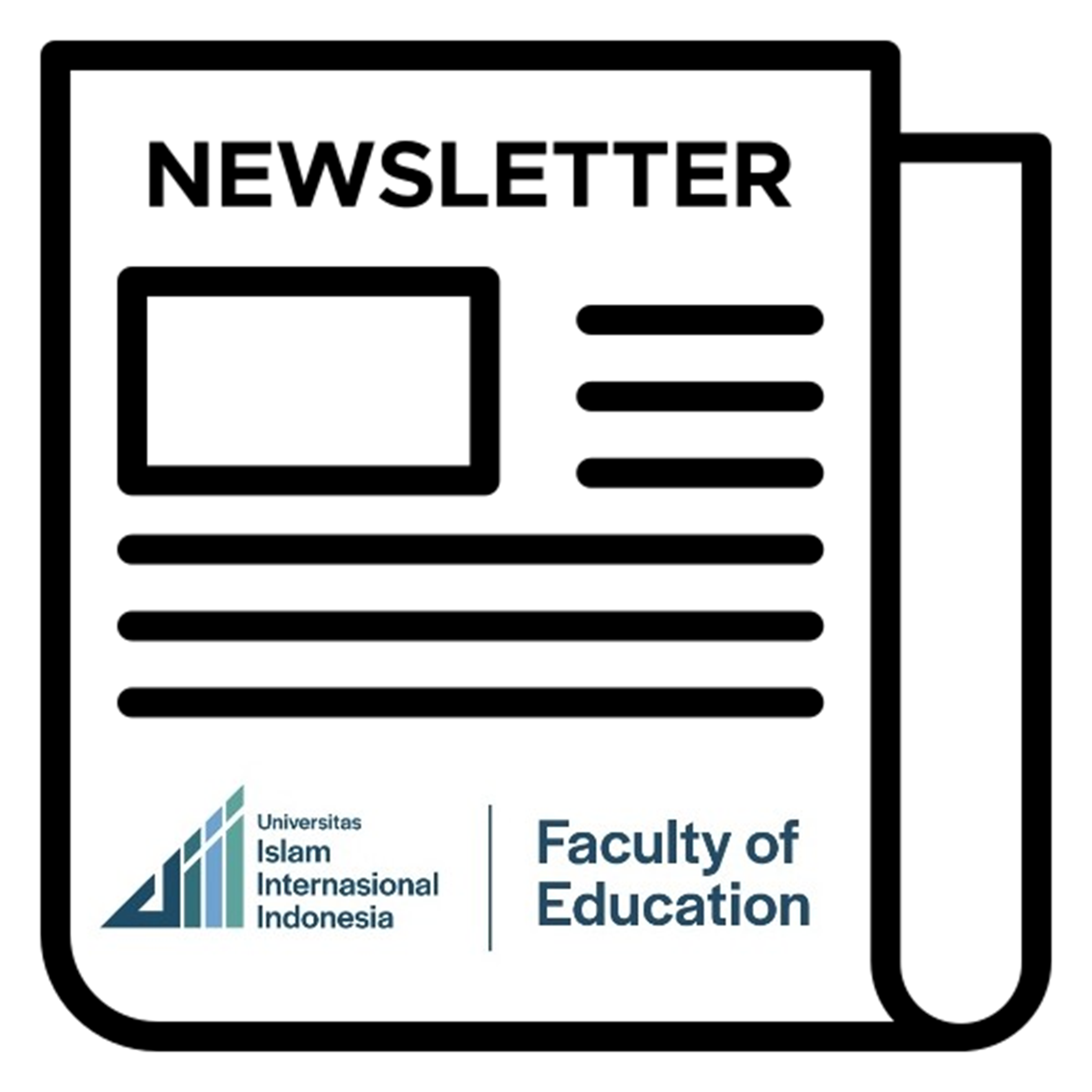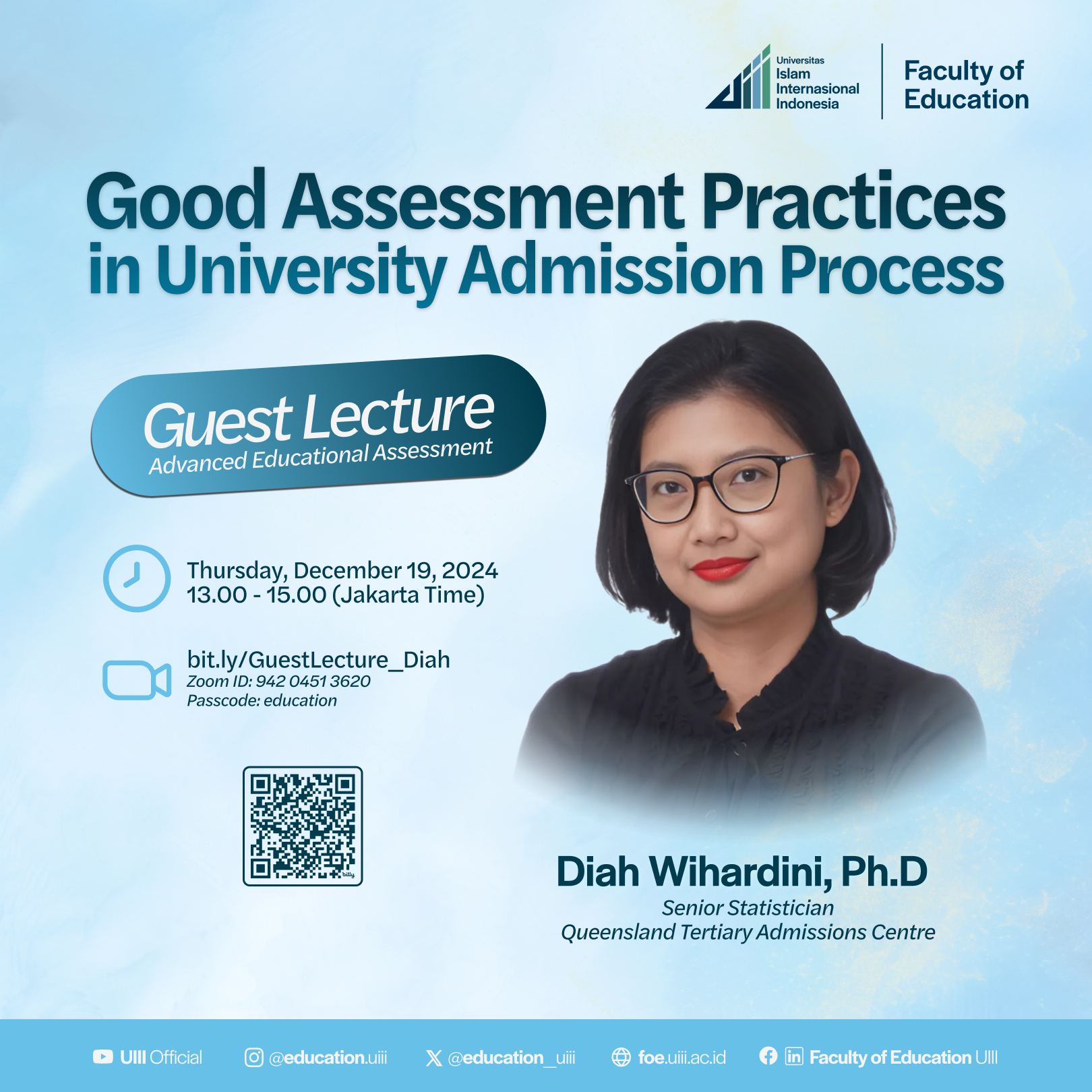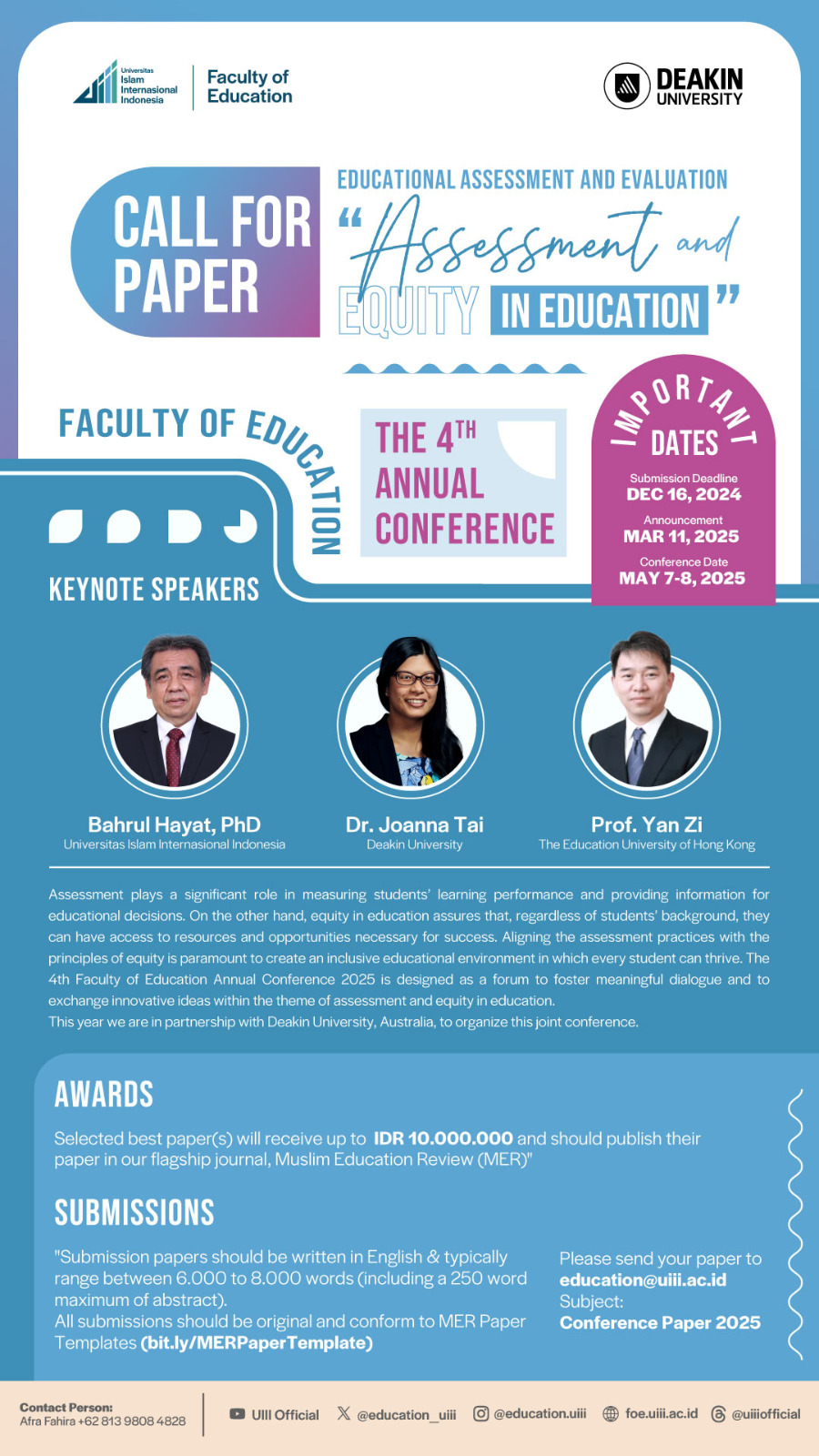The Return of Indonesia’s National Exam: A Step Backward or Forward?

The Return of Indonesia’s National Exam: A Step Backward or Forward?
January 07, 2025
Contributor: Dadi Darmadi | Photos: Pexels/Agung Pandit Wiguna, Achmad Jatnika
In 2021, Indonesia abolished its national exam (UN), a move once celebrated as a step toward a more holistic and less stressful education system. But now, with plans to reinstate it by the 2026 academic year, a renewed debate is unfolding across the nation.
Alpha Amirrachman, PhD, a prominent education expert at the Indonesian International Islamic University (UIII), weighs in on the challenges, implications, and potential path forward for one of the country's most controversial policies.
A Lost Benchmark?
“The abolition of the national exam, although appeared to be popular, has left a significant void,” Dr. Alpha began, emphasizing the role the exam once played in mapping educational quality and guiding students’ academic trajectories.
He pointed to the ripple effects on international education opportunities. “Universities in the Netherlands, for example, are hesitant to admit Indonesian students now because there’s no standardized assessment to gauge their academic readiness. Even domestic universities struggle because the current national assessment is sampling-based rather than individual-focused. What we need is an individual assessment system to ensure students are adequately prepared for higher education.”
Adding to the concern is Indonesia’s declining global competitiveness, Dr. Alpha cited the country’s slipping scores in the Program for International Student Assessment (PISA) as evidence of a broader systemic issue. “Since the abolition of the national exam, our PISA rankings have dropped, which is alarming for a nation aiming to build a Golden Generation by 2045.”
Hope for a Thoughtful Approach
Despite these concerns, Dr. Alpha acknowledged the government’s efforts to involve diverse stakeholders in rethinking the exam’s structure. “The Ministry of Primary and Secondary Education is taking a cautious, participatory approach by consulting teachers, school leaders, educational experts, and community-based organizations,” he noted, adding what he coined as “meaningful participation.”
Still, he urged the ministry to go beyond traditional academic metrics. “A redesigned national exam must address not only cognitive skills but also broader competencies, such as emotional intelligence and social adaptability. Furthermore, the 2025 academic year should serve as a transitional phase to refine the system before full implementation in 2026,” he recommended.
Building a Supportive Ecosystem
For Dr. Alpha, the success of any assessment system hinges on the educational ecosystem. He proposed establishing an independent national assessment body to design and administer exams with professionalism and impartiality.
“This body should operate independently from the ministry to ensure objectivity and credibility,” he argued.
Addressing the perennial issue of student stress, Dr. Alpha highlighted the ministry’s recent “Seven Habits of Great Indonesian Students” initiative, which encourages daily routines like early rising, praying, exercising, studying happily, eating healthy and nutritious food, socializing and going to bed early. “If consistently implemented with the support from teachers and parents, such simple but powerful habits could significantly enhance students’ physical and mental well-being, creating a more conducive learning environment,” he said.
A Crossroads for Education
The debate over the national exam reflects deeper questions about Indonesia’s educational future. Is the country prepared to strike a balance between maintaining rigorous standards and fostering a supportive, holistic learning environment?
Dr. Alpha concluded with a sobering yet optimistic perspective: “Policy decisions in education must not only address present challenges but also prepare our students for a rapidly evolving future. This is an opportunity to build a system that empowers, rather than burdens, the next generation.”
As Indonesia stands at a crossroads, the stakes are high. Whether the national exam becomes a symbol of progress or regression will depend on the choices made today—and the vision for tomorrow.
UIII Experts Respond to Govt's Plan to Reinstate National Exams

UIII Experts Respond to Govt's Plan to Reinstate National Exams
January 07, 2025
Contributor: Supriyono | Editor: Dadi Darmadi | Photos: Pexels/muallim nur, Achmad Jatnika
The recent announcement by newly appointed Minister of Primary and Secondary Education, Prof. Abdul Mu'ti, regarding the potential reintroduction of the National Exams (Ujian Nasional, or UN) in the 2026 academic year has sparked extensive discussions among education stakeholders. Two education experts from Universitas Islam Internasional Indonesia (UIII) shared their perspectives on the proposed policy shift and its implications.a
Prof. Nina Nurmila: A Strategic Tool for Educational Equity
Prof. Nina Nurmila, Dean of the Faculty of Education at UIII, noted that shifts in national education policies, including the removal and reinstatement of National Exams, have become a recurring trend with each change in government leadership.
"The National Assessment is crucial for mapping educational achievements across regions. It helps identify underperforming areas and allows targeted interventions to improve student outcomes. High-achieving schools can also serve as models for others," Prof. Nina explained.
She expressed optimism about the minister's intention to enhance and equalize educational quality across Indonesia, emphasizing the need to address significant gaps between urban and rural regions, as well as disparities between Java and non-Java areas. "If implemented effectively, the National Assessment could ensure that no student is left behind," she added.
Dr. Bambang Sumintono: Addressing Past Challenges and Ensuring Transparency
Dr. Bambang Sumintono, Head of UIII's PhD in Education program, raised critical questions about the rationale and execution of the proposed policy. He questioned whether there had been thorough studies proving that the removal of National Exams effectively reduced the urban-rural educational gap. He also highlighted that while the previous National Assessment produced literacy and numeracy reports, these were only available at the district level and not fully disclosed to the public.
Dr. Bambang expressed concerns about repeating past issues, such as the heavy emphasis on rote memorization and the psychological pressure placed on students and parents. "In many countries, standardized exams are administered in the middle of study rather than at the end, reducing stress and allowing room for improvement," he noted.
He emphasized the need for clarity regarding the design and implementation of the revamped National Exams. Questions remain about the subjects to be tested, the weight of exam scores in graduation decisions, and how the system will avoid creating new psychological burdens for students.
The Shift from UN to National Assessment, Why Now?
The Indonesian government officially abolished the National Exams in 2021, replacing them with the National Assessment system, which included the Minimum Competency Assessment (AKM), character surveys, and learning environment surveys. This change aimed to create a more comprehensive evaluation method focused on developing competencies rather than memorization.
At the time, former Minister of Education Nadiem Makarim argued that eliminating the National Exams would reduce pressure on students and allow for more balanced educational development.
However, Minister Abdul Mu'ti recently indicated that the National Exams might return in a revised format. While the exact structure remains unclear, he suggested that the exams could serve both as a tool for mapping education quality and as a criterion for university admissions.
As discussions continue, experts stress the importance of transparency, stakeholder engagement, and a focus on reducing educational disparities across the archipelago. The success of this policy, they argue, will depend on how effectively it addresses past shortcomings while aligning with Indonesia's long-term educational goals.
Exploring AI and the Future of Educational Leadership
 Exploring AI and the Future of Educational Leadership
Exploring AI and the Future of Educational Leadership
December 31, 2024
Contributor: Supriyono | Editor: Dadi Darmadi
The UIII Faculty of Education, in collaboration with the American Institute for Indonesian Studies (AIFIS), hosted an insightful and thought-provoking virtual LunchTalk #36 with Prof. Khalid Arar from the College of Education, Texas State University, USA. The session, titled “Human-Machine Symbiosis: AI and the Future of Educational Leadership,” explored the transformative potential of artificial intelligence (AI) in education, specifically in leadership and decision-making.
In his opening remarks, Prof. Arar, who is also the editor-in-chief of the ‘Leadership and Policy in Schools’ journal, emphasized the importance of bridging the gap between Western-centric academic publications and the vast population of Asia, including Indonesia. He called for more inclusive scholarship in the field of educational leadership and urged participants to consider submitting their work to the journal.
The crux of Prof. Arar's presentation revolved around the symbiotic relationship between humans and AI, proposing that the future of educational leadership could thrive through collaboration between human expertise and machine intelligence. He invited the audience, comprising educators and scholars, to reflect on key questions regarding AI's integration in education. These included ethical considerations, the role of AI in shaping educational values, and the desired outcomes of human-AI collaboration.
One central theme of the talk was the evolution of education, from its roots in the Industrial Revolution to the current age of AI and digital literacy. Prof. Arar discussed the paradigm shifts that have occurred in education, asking whether we should embrace or resist AI's integration in schools. He also highlighted how AI's capabilities, such as rapid data analysis, could revolutionize decision-making processes in educational institutions.
Prof. Arar shared several examples of AI applications in educational leadership, such as using AI for recruiting educational leaders, analyzing big data to improve institutional effectiveness, and enhancing the decision-making process through AI-generated scenarios. He stressed the importance of human-AI symbiosis, noting that both humans and AI make decisions by processing vast amounts of data—humans through their biological brains and AI through artificial neural networks.
The presentation also touched upon the ethical challenges surrounding AI use in academic work. Prof. Arar pointed out the importance of addressing bias, fairness, and ethical guidelines in AI applications. He urged the audience to co-create knowledge and adapt to the evolving educational landscape by reimagining educational leadership through AI.
In the latter part of the session, Prof. Arar shared insights from his recent research, including a bibliometric analysis on AI in educational leadership and a thematic study on AI's impact on the field. He discussed the alignment of AI research with the United Nations' Sustainable Development Goals, particularly in promoting quality education.
The event concluded with an interactive symposium, allowing participants to engage in discussions about the possibilities of AI in educational leadership. Prof. Arar emphasized the importance of collaboration and co-thinking, urging the academic community to continue exploring AI's potential to reshape education and leadership.
By hosting such an event, UIII continues to demonstrate its values of innovation, inclusivity, and forward-thinking leadership in higher education. The university provides a platform for educators, scholars, and thought leaders to explore the intersections of education and technology, preparing its community for the challenges and opportunities that lie ahead in an increasingly AI-driven world.
source: https://www.uiii.ac.id/events/read/57802/exploring-ai-and-the-future-of-educational-leadership
Lunch Talk #37: Reflections for the future: Algorithmic cultures in education, work and migration

You are invited to join the Lunch Talk #37 at the Faculty of Education, UIII
Nardine Alnemr, Ph.D. (Lecturer at the School of Humanities, Arts and Social Sciences (HASS) and Fellow of the Indo-Pacific Research Centre (IPRC) at Murdoch University) will share about: “Reflections for the future: Algorithmic cultures in education, work and migration".
Mainstream uses of Large Language Models (LLMs)-based artificial assistants have opened opportunities for redefinition of education and work. Yet placed in a wider context of algorithmic logics and cultures, which simplify social and political problems to “if-then” formulations, how does such affect the future of education, work and migration? This talk presents an overview of some of these connections. Questions covered in this talk include: What pedagogical changes are educators introducing to adapt to opportunities associated with AI applications? What are the implications for education when work becomes increasingly defined on capacities to develop and use AI? How does this shape migration pathways and assessments which might exacerbate global disparity or “brain drain”? One approach to consider in response to these questions is to centre “the future.” This framing can create justifications for the changes and opportunities that are accountable to the present realities and the expected benefits.
Day/Date: Wednesday/January 8, 2025
Time: 13.00-14.30 WIB
Place: Theater, Faculty A Building
Online participation:
https://bit.ly/LunchTalkEdu37
E-Certificate is provided
Thank you!
Recorded on YouTube
https://www.youtube.com/watch?v=_dZhsR3MO38
Examining Educational Equity in Indonesia through Student Performance in the Certified Emancipated Learning Internship Program
 Hakim, L., Winarti, D., Kayen, H., Numan, M., Buana, I., & Barliana, D. (2024). Examining Educational Equity in Indonesia through Student Performance in the Certified Emancipated Learning Internship Program. Aspirasi: Jurnal Masalah-masalah Sosial, 15(2), 143–157. doi:https://doi.org/10.46807/aspirasi.v15i2.4389
Hakim, L., Winarti, D., Kayen, H., Numan, M., Buana, I., & Barliana, D. (2024). Examining Educational Equity in Indonesia through Student Performance in the Certified Emancipated Learning Internship Program. Aspirasi: Jurnal Masalah-masalah Sosial, 15(2), 143–157. doi:https://doi.org/10.46807/aspirasi.v15i2.4389
Changes in Students’ Socioscientific Reasoning in an Environmental Chemistry Class: Application of Multi-Facet Rasch Model

Laliyo, L., Sumintono, B., La Kilo, J., and Panigoro, C.. (2024). Changes in Students’ Socioscientific Reasoning in an Environmental Chemistry Class: Application of Multi-Facet Rasch Model. The International Journal of Assessment and Evaluation 32 (1): 49-75. doi:10.18848/2327-7920/CGP/v32i01/49-75. URL: https://cgscholar.com/bookstore/works/changes-in-students-socioscientific-reasoning-in-an-environmental-chemistry-class?category_id=cgrn
Abstract
The primary aim of this research is to evaluate the quality of change in socioscientific reasoning (SSR) among students through the application of the multi-facet Rasch model (MFRM) within a quasi-experimental quantitative research design. The study involved thirty-one students. All participants completed a ten-item test with open-ended questions. Student responses were assessed by five raters using a rubric, and the data were analyzed using the MFRM stacking technique. The analysis revealed that the data aligned with the MFRM measurements, and there were variations in students’ SSR scores between T1, T2, and T3. The postintervention change (T1–T2) demonstrated a positive shift, indicating the effectiveness of the intervention. However, postretention changes (T2–T3) showed a negative trend, suggesting a weakening of the intervention’s meaningfulness. When examining the nature of postintervention and postretention changes together, it became apparent that a significant proportion of students (71%) exhibited weak and inconsistent changes in their SSR, with some students experiencing anomalous shifts. Importantly for the accuracy of the MFRM measure, although the intervention initially resulted in positive changes, these changes did not persist in the postretention period. This suggests there is room for improvement in the long-term impact of the intervention on students’ SSR.
Lunch Talk #36: Human-Machine Symbiosis: AI and the Future of Educational Leadership

We are thrilled to inform you that the Faculty of Education, UIII, in collaboration with the American Institute for Indonesian Studies (AIFIS) will conduct Lunch Talk#36.
Prof. Khalid Arar, Ph.D. (Lecturer at College of Education, Texas State University) will share about: “Human-Machine Symbiosis: AI and the Future of Educational Leadership".
This talk explores the evolving relationship between Artificial Intelligence (AI) and educational leadership in the era of digital literacy and knowledge technology. It systematically traces key trends, concepts, and themes, addressing implications for Sustainable Development Goals, future research, and the transformative potential of AI in education.
Day/Date: Tuesday/December 24, 2024
Time: 09.00-10.30 (Jakarta Time)
Zoom Link: https://bit.ly/LunchTalkEdu36
E-Certificate is provided
Thank you!
Recorded on YouTube
https://www.youtube.com/watch?v=-iSOq5W3aqo

